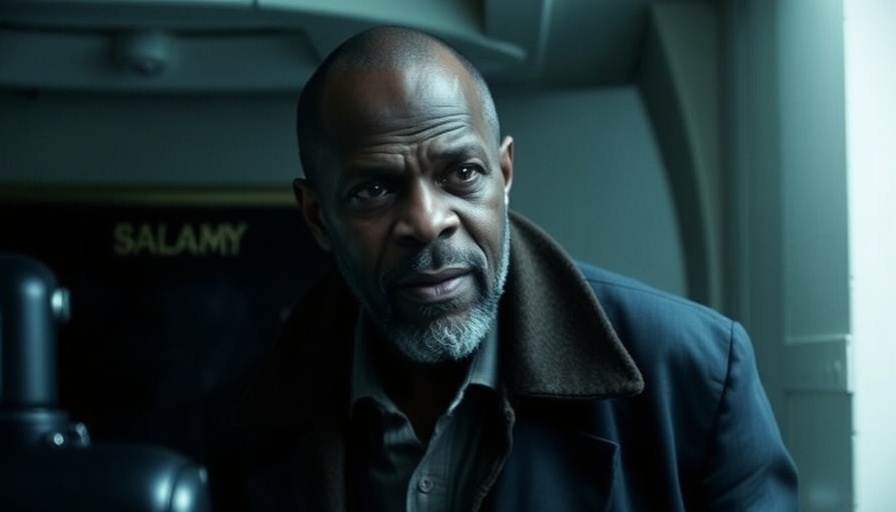
Samuel L. Jackson's Iconic Death in Deep Blue Sea
In the shark thriller Deep Blue Sea, Samuel L. Jackson's character, CEO Russell Franklin, faced a dramatic and watery demise that has become memorable in cinematic history. His reflection reveals more than just an iconic death; it encapsulates the challenges and experiences faced during filming. With the set turning into a torrent of artificial storms, Jackson recalls, “I was in water for a month. It was kind of wild.” The making of the film mirrors the sheer terror of its plot, demanding great dedication from the cast, who spent grueling hours in cold water tanks. This shooting experience is not just a fun anecdote—it's a testament to the technical difficulties and teamwork involved in creating a thrilling movie.
Behind the Scenes: The Torturous Filming Conditions
The film was shot entirely at Baja Studios in Mexico, where water tanks originally engineered for Titanic provided a unique setting for the shark mayhem. Jackson’s description of actors struggling with the constant wetness speaks to the commitment required by the cast and crew. Initially, everyone made an effort to leave the pools to use the restroom, but as filming continued, they compromised on hygiene in favor of convenience, effectively transforming the sets into “a giant tank of urine.” This gritty reality of filmmaking highlights the lengths to which actors must go to create compelling and immersive cinematic experiences, all while delivering exhilarating entertainment to audiences worldwide.
Cementing a Legacy: Representation and Cultural Significance
Jackson also touches on a noteworthy shift in representation in horror films during his character's arc. Historically, in movies like Jurassic Park, characters of color often fell victim to the first casualties. Instead, Deep Blue Sea broke the mold by placing LL Cool J's character as the final survivor, marking a small yet significant victory in the ongoing fight for diversity in Hollywood. For many viewers, this shift in narrative not only means a mere change in character arcs; it symbolizes hope and progress in how stories are crafted.
The Evolution of Special Effects: A Journey Through Time
During its release in 1999, Deep Blue Sea utilized CGI technology that was still in its infancy—a stark contrast to the groundbreaking effects seen in modern films today. While some of the film's effects may appear dated now, they were revolutionary for their time. Filmmaker Renny Harlin faced the challenge of integrating practical effects with CGI shark attacks, creating memorable sequences that would fuel discussions for years to come. This evolution reminds us of how far the film industry has come in balancing realism and entertainment using technology.
The Future of Shark Thrillers: What Comes Next?
As Jackson continues to collaborate with Renny Harlin, the audience is left to wonder: what will emerge in their next project? Will sharks reclaim their spot as the notorious villains, or will new fears be unearthed in the depths of the ocean? Jackson has expressed interest in resurrecting his character through creative storytelling, hinting at the potential for sequels or remakes that may yet again redefine the genre. For fans of shark thrillers and cinema enthusiasts alike, following this journey will be captivating.
Embracing the Wild Waters of Cinema
Samuel L. Jackson's reflections serve not just as a nostalgic walk through his career, but as an invitation for all to embrace the wild waters of creativity in cinema and beyond. Whether it’s the representation of Black characters overcoming adversity or the ingenuity behind special effects, every aspect of filmmaking can inspire audiences to appreciate the craftsmanship behind what unfolds on screen. As we step into future projects, let’s take a moment to acknowledge those messy, thrilling experiences that keep cinema alive.
For those intrigued by the magic of filmmaking, or those inspired by Jackson’s journey, step outside your comfort zone and explore the wild realms of creativity that await!
 Add Row
Add Row  Add
Add 




Write A Comment